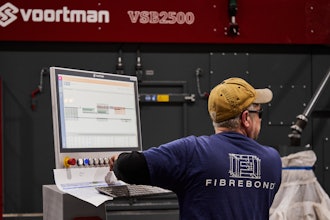Don Hsieh, Director of Commercial and Industrial Marketing, ADT Security Services
The Food Technology & Safety Exchange Show was held in Fort Lauderdale, Fla., from Nov. 6-8. Food Manufacturing spoke with Don Hsieh of ADT Security Services about the latest food safety trends from the event, as well as how food processors can take a proactive approach to food safety and defense.
Q: What progress has been made with the Food Safety Modernization Act (FSMA) in the last year?
A: Since the enactment of FSMA, two important new regulations have been issued by the Food and Drug Administration (FDA) under the new authorities granted to them under FSMA, and went into effect on July 3, 2011:
- Administrative Detention of Foods: Previously the FDA had the authority to detain food if there was “credible evidence” the food posed a threat of adverse health consequences. Now the FDA can detain food if they have “reason to believe that the article of food is adulterated or misbranded” for up to 30 days.
- Prior Notice of Imported Foods: Requires food importers to inform the FDA if any country has refused entry to the same product, including food for animals, through the prior notice system for incoming shipments of imported foods.
The FDA has also published 2012 fee rates for certain domestic and foreign facility re-inspections, failure to comply with a recall order and for importer re-inspections. These fees went into effect on Oct. 1, 2011 and will remain in effect for one year. Fees are assessed for companies whose non-compliance results in FDA activities that require additional costs and fall outside of compliance rules and regulations. Previously, the FDA bore those costs.
Q: How can food manufacturers be more proactive when it comes to food safety?
A: The actions previously outlined clearly indicate that the FDA is being more proactive in protecting the food supply. “This authority strengthens significantly the FDA’s ability to keep potentially harmful food from reaching U.S. consumers,” said FDA Deputy Commissioner for Foods Mike Taylor. “It is a prime example of how the new food safety law allows FDA to build prevention into our food safety system.”
Food manufacturers can also be more proactive by assessing all aspects of their food supply chain. The fact is that, unfortunately, threats to food safety and/or a contamination crisis can threaten a company’s brand and come from anywhere. To be proactive, food manufacturers should determine if they have the capabilities today to gather all the actionable intelligence they need to protect their brand from threats to their food supply chain.
Q: What should processors consider when developing a Food Defense strategy?
A: There are four key pillars to a proactive Food Defense strategy that processors need to consider. :
- Assess: Vulnerability assessment of Critical Control Points
- Access: Allow only authorized staff access to Critical Control Points
- Alert: Continuously monitor Critical Control Points to alert appropriate individuals of intentional and unintentional instances of food adulteration
- Audit: Determine operational and regulatory compliance to best food defense practices and provide documentation of compliance to FDA
The 4As listed above provide a blueprint to the industry to apply best practices when developing a strategy, and are a great way for processors to focus their resources. A good tool to get started is the FDA’s Food Defense Mitigation Strategies Database.
Q: What were some food safety trends that you noticed at this year’s Food Technology & Safety Exchange show?
A: Fifty percent of FDA recalls in the last 60 days were related to issues with allergens, so there was special attention paid to best practices around allergen controls. Proper separation of materials and personnel to prevent cross-contact of allergens and the ability to monitor compliance with those procedures were important considerations to minimize, and hopefully will eliminate this issue.
Q: What can companies do to better ensure food safety throughout their supply chains and their processes?
A: Key areas companies can focus on to enhance supply chain security are shifting to real-time tracking and monitoring of products and remote video auditing:
- Move to real-time tracking and monitoring of products as they move through the supply chain by taking advantage of GPS and sensor technologies
- Ensure operational compliance to their food safety procedures throughout their widespread operations by taking advantage of remote video auditing capabilities. Remote video auditing will enable you to consistently monitor compliance at all times versus only when their plant auditors are verifying compliance with a checklist on a clipboard.























